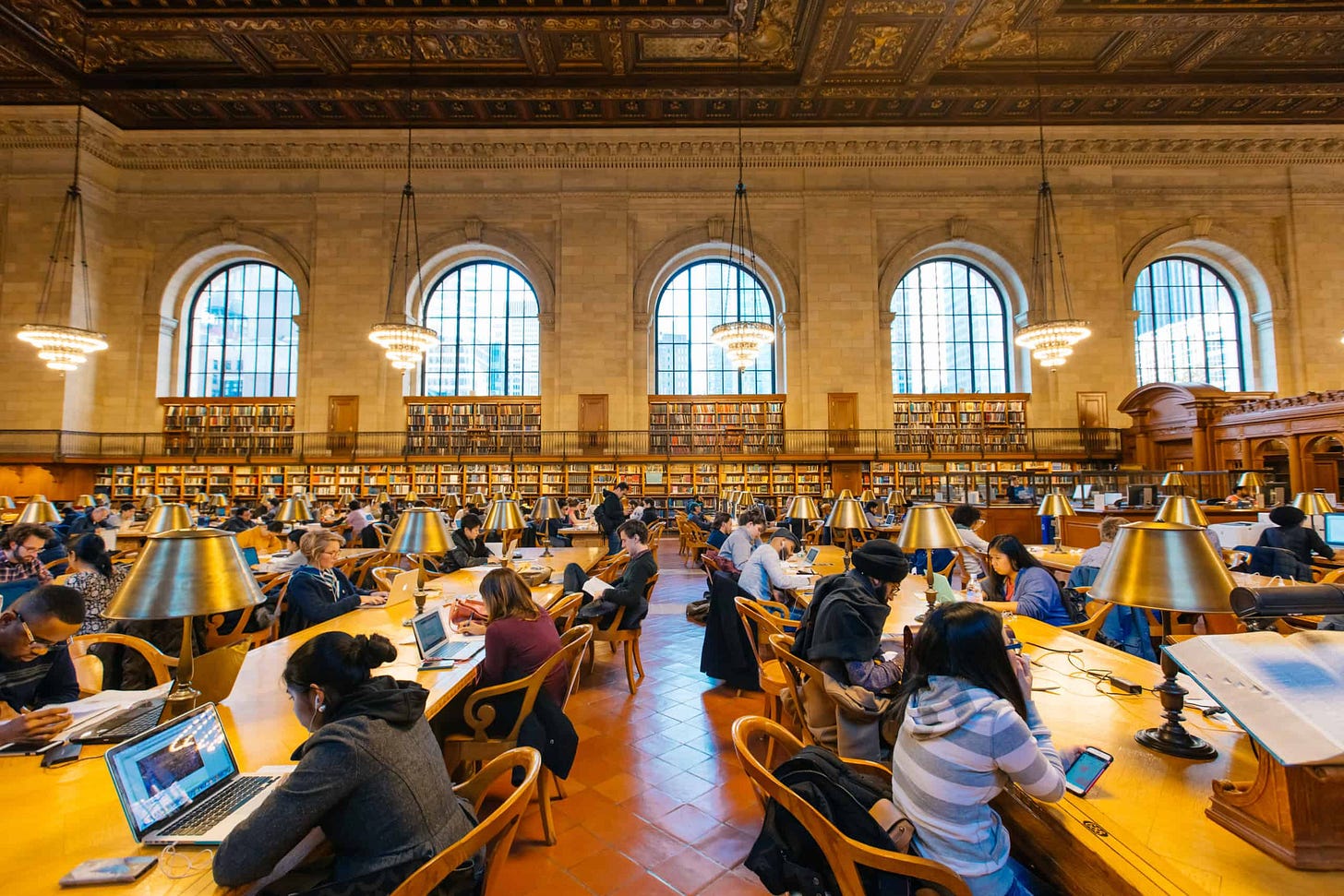The Changing State of Libraries
I recently visited the Seattle Central Library, a famous urban icon designed by world-renowned Rem Koolhaas (Office of Metropolitan Architects). This was one of the first buildings my professors taught us in architecture school. So naturally, I was excited to visit.
Koolhaas challenged typical expectations of what a public library should look like. Floating volumes are connected by escalators. Then, he wrapped the whole thing in glass. The Seattle Central Library definitely overstates its presence in the grid of downtown.
Aside from the architecture, one thing stuck out to me. As I waited outside before the library opened, I noticed a large gathering of people waiting to get in. I soon realized that this particular library’s primary users are Seattle’s homeless population seeking refuge from being outdoors.
The public library - a civic institution once created for sharing and disseminating knowledge - has morphed into a catch-all place for public services. According to the annual library survey, library visitors declined by 50% in the past decade.
What’s exacerbated this change is how we access information today. The rise of the internet, buying books online, renting eBooks from digital library apps like Libby, and listening to books rather than reading them permanently shifted how people access knowledge and books. We no longer need to physically go to a place to scoop up information. We can access it from our fingertips from our devices.
This paired with a growing homeless crisis, lack of housing affordability, and a warming planet is transforming the library. Now, the library provides social services and acts as a cooling center during the summer. Space previously reserved for books are being dedicated to community services and other activities.
Are we asking our libraries to do too much? Does it make sense to squeeze books out of libraries in favor of other human needs? Maybe. Yet governments keep cutting funding to the very institutions that are holding our communities together. Maybe instead of politicizing libraries and banning books, governments should rethink the libraries’ changing role for its communities.
And maybe fund them as such.







